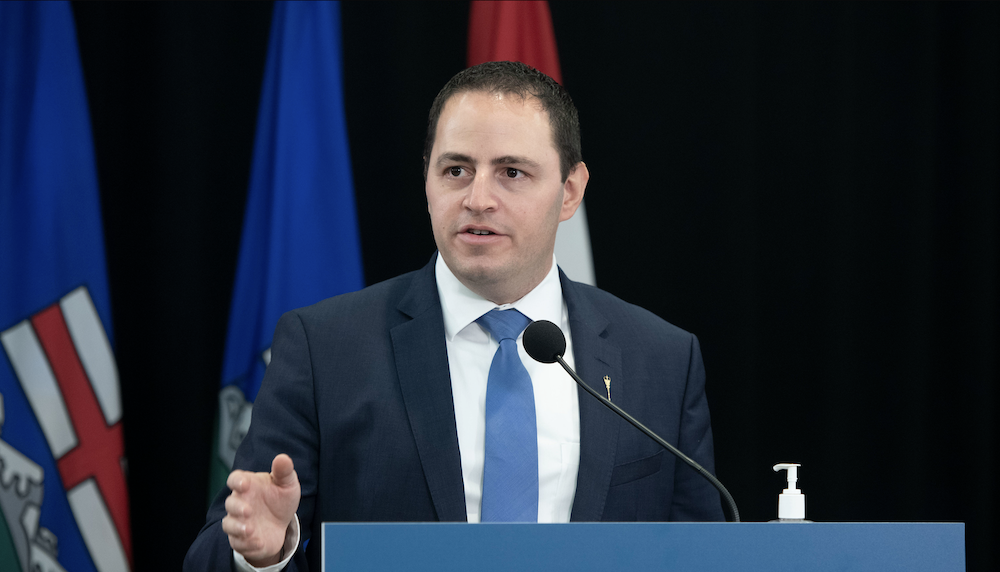The first news stories about the “exceptional tuition increases” in 12 University of Alberta programs that advanced education minister Demetrios Nicolaides has quietly approved are bound to focus on the startling percentages—100 per cent or more in the case of a couple of programs.
But what’s needed beyond that kind of shock coverage is some analysis of the impact of such extreme tuition increases on the services graduates of the affected programs are expected to provide for Albertans down the road.
Needless to say, the UCP approach to essential service shortages in any field is not what you’d call a holistic one. When it comes to advanced education, they want to cut, and cut deeply, without much attention to the consequences, secure in their quaint faith that “the market” will take care of everything.
So the long-term impacts of these tuition increases need study.
In the meantime, we can get back to the shock of the “exceptional” tuition increases that the U of A talked Nicolaides into signing off on late last month, over and above the government’s supposed seven per cent cap of tuition increases.
The only reason we know about them is thanks to the leak of U of A documents to the NDP opposition, which put out a news release yesterday.
The Kenney government published nine news releases on the government’s website yesterday, or ten, if you count the notice of the latest orders in council. None of them had anything to do with tuition, though.
With Premier Jason Kenney’s leadership review coming up early next month, his government appears to be focused on looking busy and making sure there’s no bad news.
So instead of the story about U of A tuition, the government announced unneeded legislation to let Albertans ask online for official recognition of “special days,” a call for nominations for “community justice awards,” a new addiction recovery community that turns out to be an old addiction recovery community, privatized, re-announcement of a partnership with Ottawa to bring broadband services to rural areas, some pop-up vaccination clinics in Calgary, and a plan to spend a relatively insignificant $3 million on a youth suicide-prevention program.
Meantime, the NDP revelation that more than $10,000 will be added to fees for some programs will probably get more attention than all nine fluffy government releases. The news would certainly be discouraging if you were a young person hoping to pursue a career in any of the affected professions.
“It’s just unconscionable that they would create such huge barriers to young Albertans trying to build a career in our province,” said NDP Advanced Education Critic David Eggen, who repeated the point the Opposition has been hammering lately that the UCP is doing very little for Albertans facing of rising costs across the board.
“This no-help budget will push post-secondary education out of reach for some Albertans, and push others to pursue their careers outside of Alberta,” he said.
The increases will come into effect at the start of the fall 2022 semester.
In a statement to the CBC, Nicolaides said “all of the proposals demonstrated how the increases will directly benefit students by improving the quality of programs.” Undoubtedly the U of A made such a case, but such claims always deserve to be treated with appropriate skepticism.
The affected programs are in business, engineering, law, medicine (including dentistry), pharmacy, and education. Increases range from 16 to 104 per cent.
The biggest increases are for two related Master of Counselling Psychology programs offered by the Education faculty—for which tuition will rise 100 and 104 per cent this fall.
The program with the highest tuition was an advanced placement dentistry program for students qualified to go directly into the second year, which will rise 16.2 per cent to $66,337.
Annual fees for the regular dental program will rise 40 per cent to $32,352.76, and tuition for the U of A pharmacy program will increase 44 per cent to $16,460.80.
Nicolaides, who holds a PhD in political science from the University of Cyprus, told the CBC he had approved exceptional tuition increases at the University of Calgary, too, although it looks like no one has leaked those yet.
When the UCP cut a massive $126 million out of funding for post-secondary education in Alberta a year ago, more than half of that burden fell on the U of A, which for reasons never articulated publicly but easy to speculate on seems to face particular hostility from the Kenney government.



